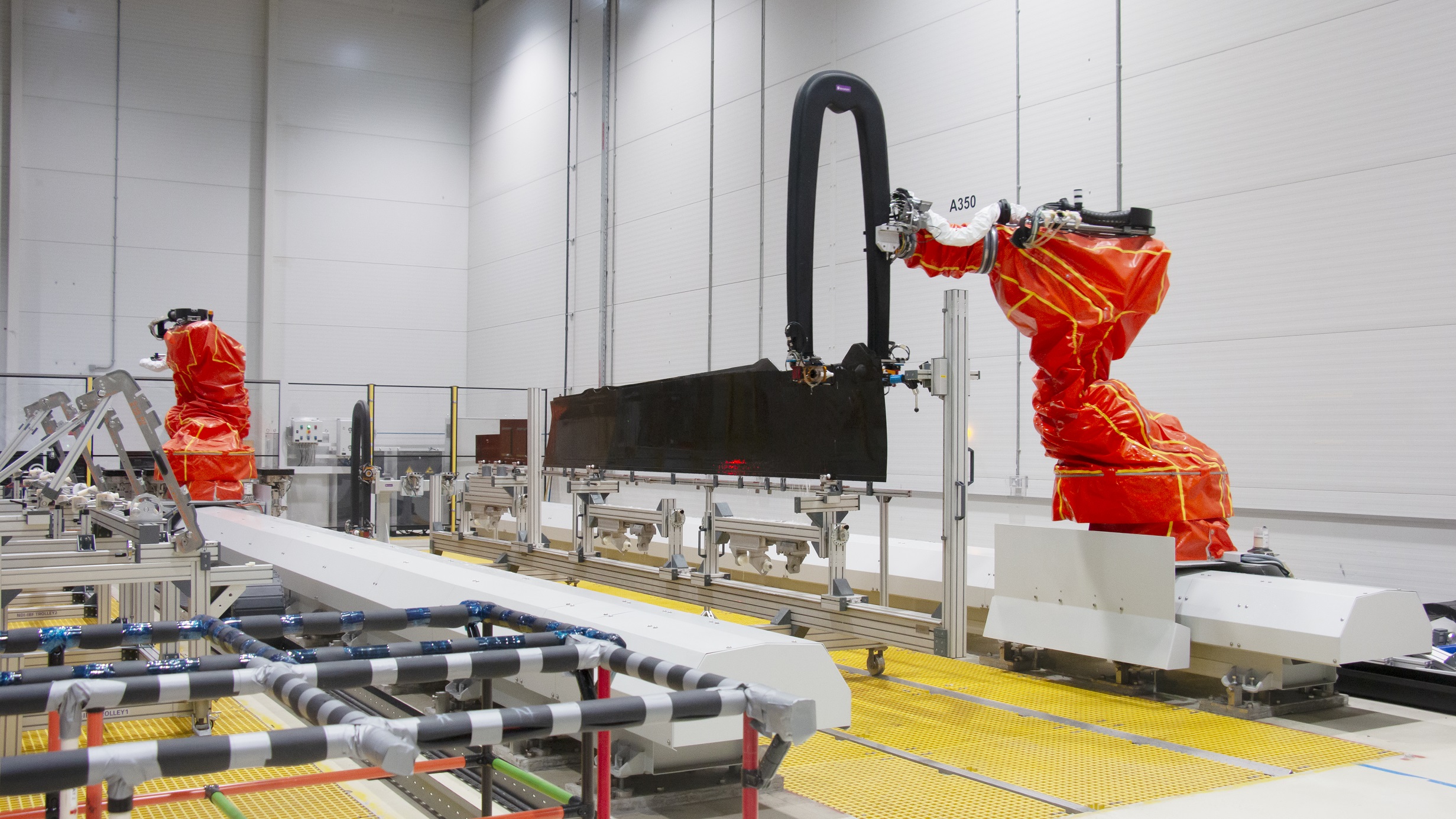Strata Manufacturing, the advanced composite aero structures manufacturing company, has leveraged Fourth Industrial Revolution, 4IR, technology to strengthen core manufacturing capabilities, diversify product portfolio and pivot into new areas of manufacturing.
Speaking at this year’s Global Aerospace Summit, Ismail Ali Abdulla, CEO of Strata, highlighted how the Al Ain-based company is embracing digital transformation through investments in Research & Development, R&D, and cutting-edge technologies, and building knowledge and expertise in collaboration with local universities, technology partners and OEM customers.
As a result, Strata has successfully adopted and deployed smart and additive manufacturing technologies, including robotic and automated assembly of aircraft structures, advanced thermography inspection techniques, and optimised processing and machining of composite parts.
According to Abdulla, the technology investment has not come at a human cost, with Strata’s implementation and adoption of 4IR solutions simultaneously boosting employee productivity and optimising manufacturing operations.
“Adopting 4IR technologies in manufacturing facilities is no longer a luxury but a necessity,” Abdulla said. “Significant investments on R&D, design capabilities and manufacturing methods is imperative. Companies within the aerospace industry must collaborate with partners and technology companies to enhance competitive advantage, and further advance agility and ability to face digital disruption.”
Throughout its first decade of operations, Strata has enhanced its homegrown capabilities in manufacturing composite aero-structures components to become an increasingly competitive player in the global aerospace industry and supply chain.
Moving forward into the next decade, Abdulla revealed, “Strata is a beacon for the successful deployment of 4IR technologies by UAE companies, and we are playing a key role in the advancement of the national aerospace sector. Strata recognises the importance of staying ahead of the game and securing our future within the manufacturing and aerospace sectors.”
During the Global Aerospace Summit panel, Abdulla identified several tools redefining digital transformation in the manufacturing sector. These include robotics and automation; additive manufacturing in all forms; data analytics, artificial intelligence (AI), blockchain, and digital simulation of work environment (AR/VR/MR); ICT connectivity solutions such as Internet of Things (IoT), cloud-based processing and data storage; as well as other supplementary technologies of critical importance such as advanced materials.
“As with the last decade, technology advancements have a significant impact on manufacturing, and if adopted correctly, can only positively benefit the supply chain and process,” Abdulla explained.
“During the next 10 years, if not during a shorter timeframe, 4IR technologies will not only revolutionise manufacturing processes across several industries including aerospace, but we will see further integration of traditional manufacturing boundaries throughout the value chain as digital and physical worlds converge. Data sharing and coordination will be enhanced and will greatly influence decisions and insights, including forecasting accuracy, collaboration, and risk management. This will also support efficiencies in product handling, flow performance and cost management.”
Abdulla also revealed that Strata’s advanced manufacturing capabilities have enabled the company to seamlessly pivot into new areas of manufacturing and assist in addressing the urgent demand for Personal Protective Equipment (PPE) during the COVID-19 pandemic.
“Strata saw an opportunity to utilise our manufacturing capabilities to help protect frontline workers and support the UAE’s global fight against the virus,” Abdulla said.
By collaborating with Honeywell, a long-standing Mubadala partner, Strata built the Arabian Gulf’s first production line for the N95 mask within 30 days of initial talks. To date, Strata has surpassed the one million mask production milestone to help meet the UAE’s domestic PPE demands. It has also started shipping the masks to overseas markets including the UK and Japan.




